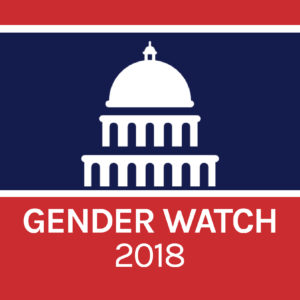On Friday, June 8th, the United States Conference of Mayors (USCM) will hold its annual meeting in my hometown of Boston. Made up of mayors from cities with populations of 30,000 or more, the USCM provides not just a snapshot into the future of urban policy, but also an opportunity to examine gender parity on, simultaneously, national and local scales.
According to the Center for American Women and Politics, as of March 2018, women make up just 21.8% of mayors in the USCM. Ten states have no women representing them in the USCM, and the stats are even worse for women of color: the largest 100 cities in the U.S. are represented by only 9 women of color at the mayoral level.
Let’s look at the city where the USCM meeting takes place. Boston, the first city in Massachusetts, has never elected a woman mayor. However, 6 of its 13 city council members are women, and all of those women are women of color. With diversity of representation at the heart of a city’s legislative body, why does it matter who the mayor is? The Barbara Lee Family Foundation is particularly focused on the barriers women face on the path to executive office because we know that having a woman as THE decision maker, not just A decision maker, has the potential to transform her community.
Growing numbers have been elusive for women seeking executive office. Barbara Lee, the founder of BLFF, addressed USCM’s annual meeting back in 2001; since then, the number of women serving as mayors of cities with populations of 30,000+ has grown by less than 1%. In the history of our country, only 39 women have served as governor. One reason we’ve seen so few women in executive office may be that the standards for women running for those offices are so high.
Voters are more accustomed to seeing women as part of a deliberative body, such as the legislature, city council, or school board. BLFF research shows that when a woman is running to be the CEO of her city or state, voters need more evidence to believe she is prepared to do the job than they do for a man. Women need to do more to prove to voters that they are qualified.
The irony is that serving as mayor can help women shore up many of the qualifications voters often question. Traditionally, voters knock women candidates on economic issues; they want to know, in very specific detail, that a woman can handle budgets, taxes, and the economy. Mayors are responsible for a variety of fiscal matters that can help bridge this challenge for women.
Underscoring prior political experience and professional accomplishments are key to establishing qualifications as a candidate, but likeability is also a must-have for women candidates. Voters will vote for a man they don’t like but think is qualified, but won’t do the same for a woman candidate. Serving as mayor gives women candidates the opportunity to convey likeability and executive leadership skills at the same time. BLFF research shows that it’s possible to convey likeability while discussing seemingly mundane aspects of leadership and managing everyday issues, like sewers and snowstorms.
We cannot let these double standard stand in the way of progress. It’s critical that women are not just at the decision-making table, but at the head of that table, in cities across the U.S. More women in executive office means better and more inclusive public policy making, and that’s better for everyone.


 From March to December 2018, the
From March to December 2018, the